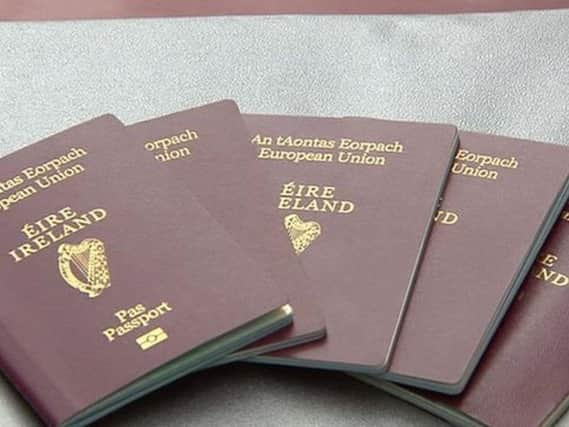Colin Harvey: Members of the unionist community are likely to suffer as a result of Brexit, but is little conversation about that


There are strong and familiar views on either side.
Yes, this was a UK-wide vote that resulted in a majority for leave. But it is equally true, of course, that most voters here do not agree, and that two constituent parts of the UK voted to remain.
It is the lack of sensitivity to these facts, combined with our complex constitutional and political history, that has prompted fierce discussion and disagreement.


Advertisement
Hide AdAdvertisement
Hide AdThings here can become polarised quickly, and in predictable ways. In the spirit of dialogue, and an ongoing conversation, I want to suggest ‘three reasonable views’ to hold as a direct consequence of where we are.
I understand and accept that others will take a different view, and many will not be persuaded.
First, based on the evidence about the impact of Brexit, it is sensible to conserve the benefits of what we have now. However this is achieved, it is wise to find solutions that will be protective of the well-being of people here.
This can be done via a UK-wide deal or by special arrangements that reflect our unique circumstances or a combination of both (or by deciding not to leave at all). The Westminster government has simply not assisted this society by taking hard-line positions that do not respect the pluralist nature of the UK and our unique needs.
Advertisement
Hide AdAdvertisement
Hide AdSecond, there has, among other things, been a focus on the rights of Irish/EU citizens, the avoidance of a hard border and the significance of existing north-south co-operation.
That is fair and understandable. What is missing is an informed debate about the impact on British citizens and the unionist community. Members of the unionist community are likely to suffer considerably as a result of leaving the EU, but there seems to be no wider conversation about that.
For example, a British citizen here should not feel compelled to assume a national identity (Irish) that she has no wish to ascribe to. Yet that is the precise long-term risk in a context where British citizens will be third country nationals for EU purposes.
It is as potentially offensive to tell a British person that she is really Irish (and should just get an Irish passport) as it is to tell an Irish person that she is British.
Advertisement
Hide AdAdvertisement
Hide AdThat is one implication of the birth right provisions of the agreement.
The danger is that this is then cast as an argument for a lowest common denominator approach for all. That is the wrong way forward.
What we need is a process of levelling up, in other words, a sustained effort to improve guarantees for everyone in ways that respect constitutional differences, and acknowledge the fact that Irish citizens will remain EU citizens.
The Protocol on Ireland/Northern Ireland speaks to aspects of it but, again, has not generated the level of detailed engagement that you would expect (despite all the noise about the ‘backstop’ components).
Advertisement
Hide AdAdvertisement
Hide AdWhy should we be deterred from being radical and ambitious for the future of this region, and seek the most secure protections possible for all those who share this space together?
Brexit will hurt everyone here. But why is there so little talk about the erosion of the rights of members of the unionist community as a demonstrable outcome?
Third, in the context of departure from the EU, many have made a fairly obvious point: the constitutional provisions around consent offer a way back to the EU for those who do not want to go.
The conversation about how we share this island takes a new direction after Brexit. Rather than pretend that this is not happening (many unionists are already engaging), it seems wise to recognise it and begin to plan and prepare.
Advertisement
Hide AdAdvertisement
Hide AdIt is well known that I have shared my views on this, and have made my arguments in public. You can read what I say, and decide if you agree with me or not. I will listen to what you have to say. In my view, there will be referendums on this island to determine our constitutional future (I have proposed a date: 22 May 2023).
I think Brexit and other factors make that more likely. It need not be a fearful discussion; it might be an opportunity for individuals and communities to present their best selves to each other.
A chance to test the arguments and answer the questions posed by constitutional choices in precise ways.
Will we be better off in the UK or in a united Ireland (that is in the EU)?
Let us have the debate.
Advertisement
Hide AdAdvertisement
Hide AdWhatever the outcome, I think we will be in a healthier place afterwards. But I may, of course, be wrong, and you may not find what I say persuasive.
• Professor Colin Harvey is an academic in the School of Law at Queen’s University Belfast